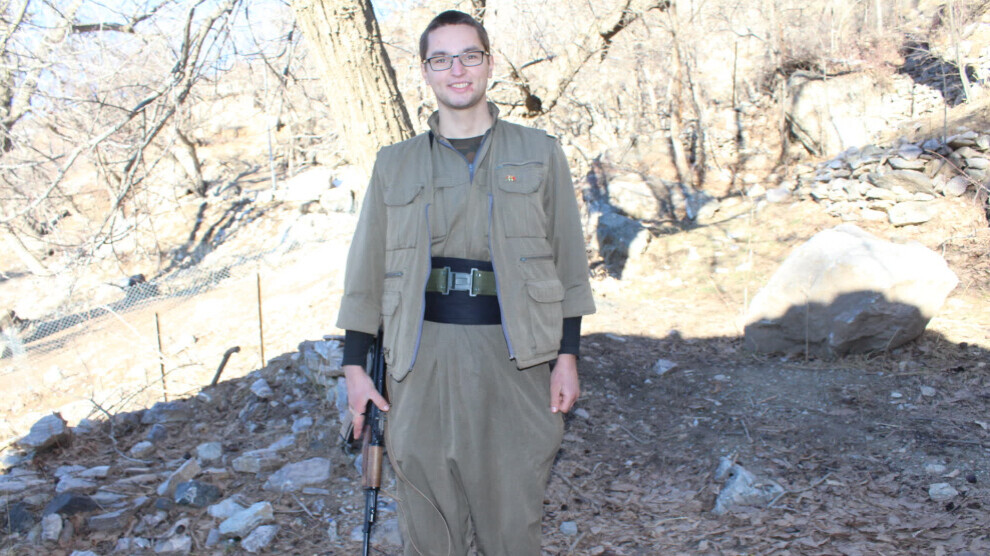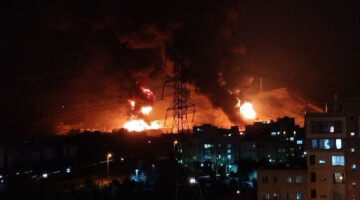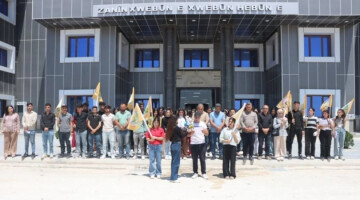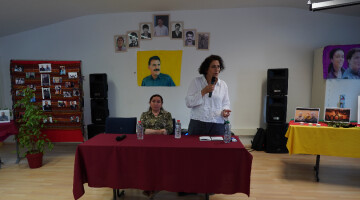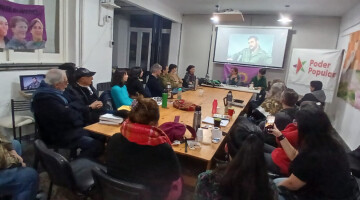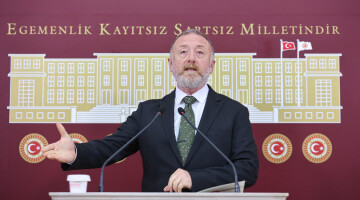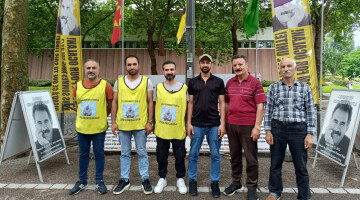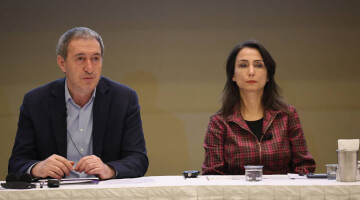Azad Şergeş, Thomas Johann Spiess from Germany was one of the three guerrillas who fell on June 15, 2023 while resisting the Turkish occupation in the region of Xakurke in the guerrilla-held Medya Defense Zones in southern Kurdistan (northern Iraq). The three guerrillas lost their lives during an action which left 18 soldiers of the Turkish army dead.
While neither the whereabouts of the fallen HPG fighter’s body nor the specific circumstances of his death have yet been clarified, Left Party (DIE LINKE) MP Gökay Akbulut has recently submitted a parliamentary question to the Bundestag on the martyrdom of Azad Şergeş, who was born in Mainburg, Germany and joined the ranks of the Kurdistan Freedom Guerrilla in 2016.
Considering the media reports that injured Turkish soldiers were brought to Turkey from southern Kurdistan at around 3.30 a.m. on 15 June, Akbulut sees the possibility that Thomas Spies may even have been found alive and taken to Turkey by helicopter. According to the MP, this would explain how the Turkish state agency Anadolu Ajansi obtained knowledge of his name and death even before Kurdish media had reported it.
When Akbulut asked what the German government knew about the death of Thomas Spies, it replied that it was only aware of it from media reports, stating that there were no official reports from the Turkish or Iraqi authorities. This answer leaves open the question of possible unofficial communication. In this context, Akbulut also asked what enquiries the German government had made to the Turkish and Iraqi authorities. The German government replied that it had "contacted both the Turkish and Iraqi authorities several times and through various channels since the media reports became known in order to verify the reporting" but had not yet received a response.
The German government's answer to the question about the procedure in comparable cases in which enquiries to Turkish or Iraqi authorities remained unanswered is also interesting. The German government refers to the case of the internationalist Konstantin Gedig (Andok Cotkar), who was murdered by a Turkish airstrike in 2019 at the age of 24 while defending Serêkaniyê in northern Syria in the ranks of the People's Defence Units (YPG). Without answering what the German government had done for Gedik, reference is made to another minor interpellation from 2022. The corresponding answer in the document refers to an answer to a question from the then MP Ulla Jelpke and states: "The Federal Government is in contact with the relatives on this matter. For reasons of protecting the personal rights of those affected, it does not comment on individual cases." The German government thus refuses to give any account of how it is supporting the German citizens killed by the Turkish army.
At the same time, the German government is obviously also trying to conceal the use of German war technology in South Kurdistan. In response to Akbulut's question as to whether there were any indications that NATO or German equipment was being used in the attacks on South Kurdistan, it claimed that it had no knowledge of this. Both the Turkish army and the troops of the KDP, which collaborates with Turkey, are heavily equipped with German weapons. For example, key components of the Turkish killer drone TB2 and its weapon systems are produced in Germany and supplied to Turkey. The TB2 is responsible for systematic extralegal executions of civilians. This means that German technology is being used directly and demonstrably in war crimes. The KDP troops have German Dingo armoured cars, Milan missiles and many other items of equipment.

